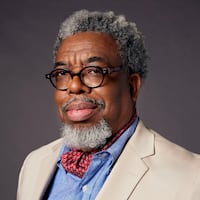A plan to open a Family Dollar store that had sparked community outcry because it would have been the fourth such facility along the Cascade Road corridor has been headed off by city action.
Critics had said the concentration of these types of discount stores lowers nearby residential property values. On top of that, they argued so-called “dollar stores” offer cheap goods to depressed and minority communities.
“We had several meetings and several teams negotiating with them to get them to leave,” said Atlanta City Councilman C.T. Martin, who represents the Cascade area. “We told them that even if they built it, we were going go boycott it.”
To resolve the situation, the Atlanta City Council has approved legislation that will permit the city to buy the property in question as part of a legal settlement and turn it instead into a park.
Atlanta Mayor Kasim Reed, who campaigned on expanding the city’s green space, said the settlement was part of a greater effort to address community needs.
“I look forward to the final resolution of this issue in a mutually agreeable fashion for all parties,” Reed said. “I support and respect the desire of the community for enhanced green space in the neighborhood as the city of Atlanta works to achieve the goal of placing a park within one-half mile of every resident.”
The move settles a lawsuit, with the city paying out $1.8 million. The council approved the settlement by a 10-2 vote.
Last September, developer Boos-Fairburn and Family Dollar sued the city for damages after construction on the site at 500 Fairburn Road was halted by the Department of Watershed Management because of runoff issues.
City attorney Cathy Hampton said Atlanta swiftly responded to the lawsuit at an emergency injunctive hearing, thus avoiding a court battle.
She said the settlement, as approved by the council and Reed, “not only avoids the expense of protracted litigation and a potential judgment against the city in excess of the settlement amount, but also provides an opportunity for the city to expand its green space footprint.”
Calls to Family Dollar were not returned.
Like many predominantly black communities, southwest Atlanta and the Cascade corridor struggle with bringing a balance of quality businesses into their neighborhoods. Often, neighborhoods are begging for quality stores, restaurants and shopping centers to free them from a dependency on corner stores that specialize in cheap goods.
Within the city, there are no Family Dollar stores in Buckhead or Midtown. Martin, who has charts and studies lining his office, points out that there are at least five Family Dollars in his district.
There are also Family Dollar stores on Donald Lee Hollowell Parkway, Old National, Campbellton Road, Joseph E. Lowery Boulevard, Metropolitan Avenue, Memorial Drive and North Avenue.
“Every community in America has a right to manifest its own destiny,” said Councilman Ivory Young, who helped get a Wal-Mart in his district earlier this year that residents and officials hope will revitalize the Vine City area. “They are doing nothing more that asserting their rights to forecast how their communities transition. We want them to have that power.”
“The city is doing the right thing,” Martin said. “All of this has to do with the value of the residents’ property and the dignity of their community.”
However, Councilwoman Felicia A. Moore, who voted against the settlement, said it sets up a dangerous precedent for the city.
“I don’t think we have ever purchased property to get out of litigation,” Moore said, adding she also is concerned about the $1.8 million price tag, which she said is more than twice what the property is worth.
“And that $1.8 million doesn’t even include the cost of building the park,” she said.
The store was planned for a two-acre lot at the corner of Fairburn Road and Benjamin E. Mays Drive that now sits unattended. Opponents of the store argued that the discount chain already had several stores in the area and that it was targeting predominantly black communities.
“They do target African-American communities with these dollar-type stores. Adding another one would have been overkill and it didn’t bring anything to the community,” said Jessica Felder, who grew up in the area.
“The city is finally listening to the neighborhood complaints,” Felder said. “The best way to beautify a community is to add a park to it.”
About the Author
Keep Reading
The Latest
Featured



